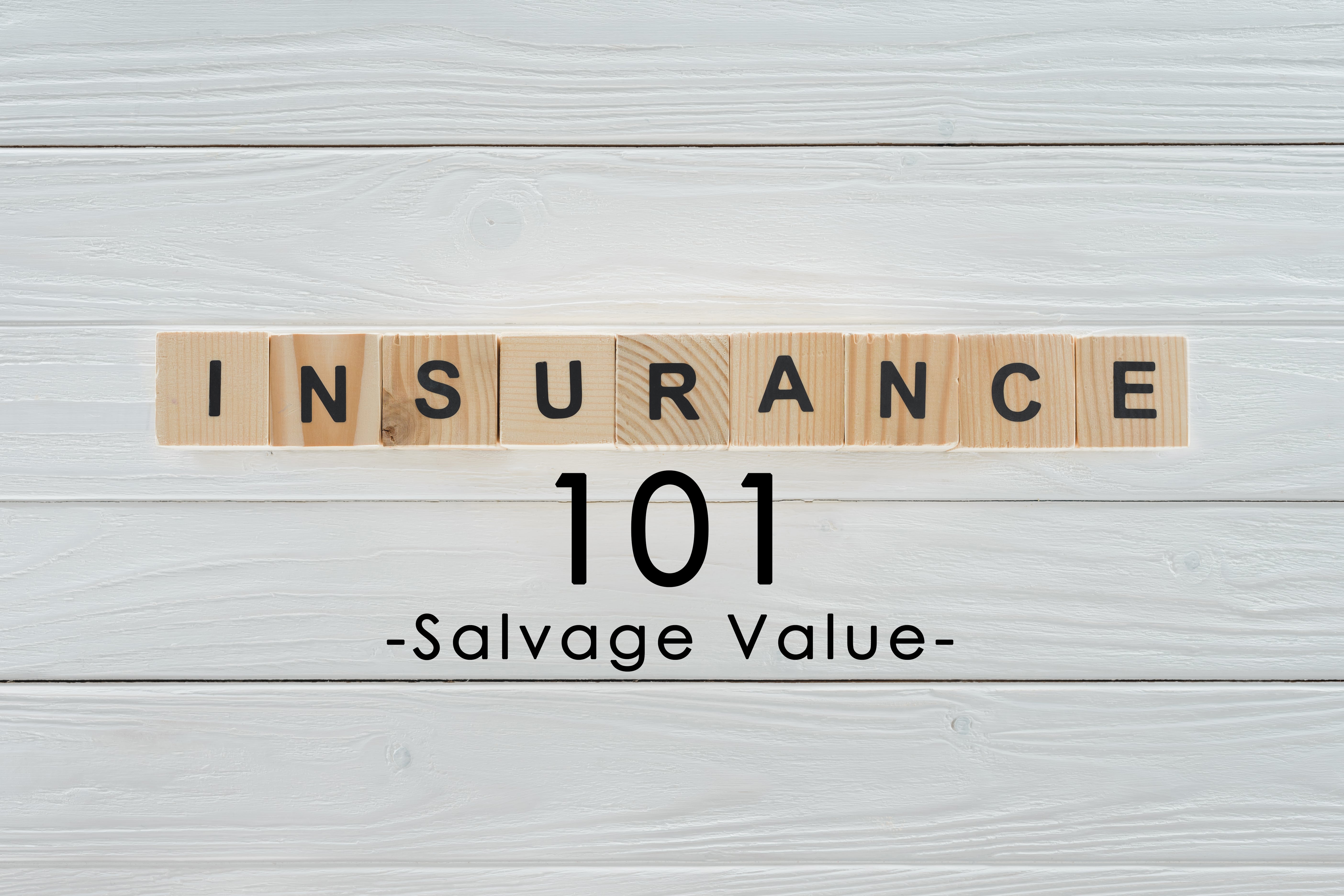Insurance Term of the Day: Salvage Value

The insurance company will use salvage value when your car is a total loss, and you decide to buy it back from them.
When you are in a car accident, a claims adjuster will come view your automobile and assess the damages. If the cost of the damages is three quarters the total value of your car, the adjuster will total out your car. Then, they will offer you the fair market value of your car. However, it is possible that even if the car is totaled, it is still driveable. By law in most states, insurance companies still have to total out the car even if it’s driveable when the damage costs exceed the value. In this case, you can make the decision to keep the damaged car, which is technically considered buying the car back from the insurance company.
The reason for your insurance is for the company to support you financially if something happens to your car. When you file a claim, they are buying your car and offering you the fair market value. When you choose to keep your car, instead of paying the fair market value of the car, they’ll keep a percentage of the total value. This is what’s called the salvage value, which is what the car would be worth if sold for parts. It’s the scrap value of the materials that it can be broken down into. The condition of the operating parts and body parts is taken into consideration when determining the value. The insurance company will determine the actual cash value (ACV) of the car and deduct a certain amount for the salvage value.
When you give your car to the insurance company, this is how the value is determined. ACV – deductible = amount paid.
When you decide to buy your car back from the insurance company, this is how the value is determined: ACV – your deductible amount – salvage value percentage = amount you are paid out on the claim.
Choosing to buy your car back from the insurance company basically means that your car is not of value anymore. In some cases, you will receive what’s called a salvage title, which states that your car has been deemed a total loss by an insurance company. Typically, after a car is deemed totalled, your insurance company will not allow you to add comprehensive/collision coverage on your policy. This means that if you are in another accident following the first, your car is not valuable, and you will receive little or nothing on a payout.




